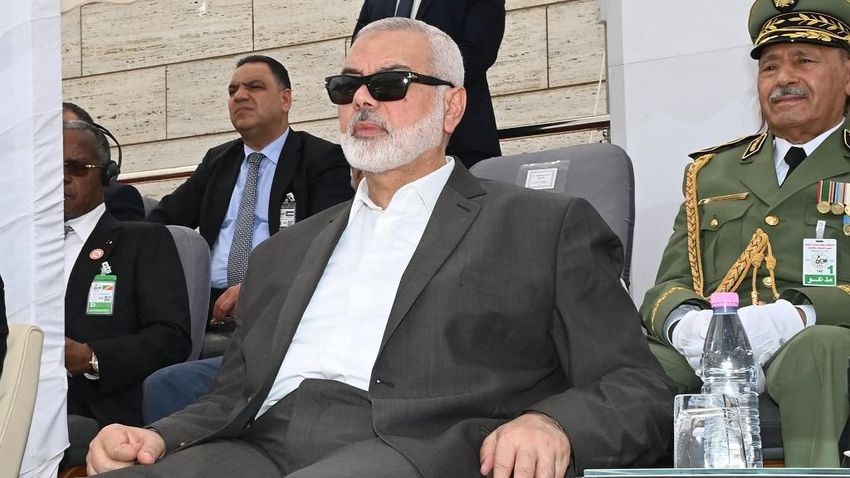Since Hamas came to power in Gaza, the zone has become practically unlivable for the Palestinians, the organization has been busy with terror instead of developing the economy.
Before 2005, Gaza's economy was highly dependent on Israel, and many of the Palestinian workers could work in the Jewish state. According the Brookings Institute, even the second intifada brought significant changes, as the Israelis reduced work opportunities for the Palestinians after the terror. In 2005, Israel withdrew from Gaza, a year later Hamas came to power, and by 2007 it had completely taken control of the strip. The Gazan economy practically collapsed, and Hamas took control of the private sector.
The Washington Institute described the group as often forcing businesses to close to eliminate competition. In addition, he forced the owners to sell their products cheaply, or to "contribute" to the growth of Hamas' coffers in cash and goods (e.g. construction materials).
Israel blockaded the area, claiming that Hamas could not bring arms shipments into the area. As a result, Gaza's economic situation has steadily deteriorated over the past decade. Due to the blockade, access to markets is significantly limited.
However, despite the poverty, Hamas still enjoys the support of the majority of the population.
According to the Washington Institute, in 2006 the terrorist organization faced serious economic difficulties and to save itself, it smuggled millions of dollars in cash from Egypt. Basically, Hamas does not care about the state of the local economy, but does everything to siphon off the aid money that comes to Gaza, as well as the amounts transferred by the Palestinian Authority.
Poverty in Gaza
Every second Gazan is poor, according to data from the World Bank . The high population growth rate is also a significant burden on the economy of the Gaza Strip, which is already in a difficult situation. Due to attacks against Israel (the IDF conducts regular airstrikes in the zone), the destroyed infrastructure must be constantly rebuilt.
However, materials intended for reconstruction are often used for non-civil buildings. Israeli data , although a large amount of construction material comes from Israel to Gaza (more than 3.5 million tons of construction material in 2016 alone), a significant part of it does not reach the construction companies, but Hamas builds terrorist tunnels from it.
Water quality and electricity are also particularly poor in Gaza, where almost no one has access to a regular or reliable supply. The terrorist organization also used water pipes sent as aid by the EU to build rockets.
More than 80 percent of households in Gaza are in need of some form of social assistance.
Unemployment among young men in Gaza is extremely high, around 36%.
The economic situation is not improved by the fact that half a million of the zone's two million inhabitants live in one of the eight refugee camps, where the conditions are particularly bad.
Driving in luxury
While the economic situation in the Gaza Strip is dramatic, the leading members of the terrorist organization Hamas fled to foreign countries from the Israeli guided missiles. And those who are left dominate the private sector.
As the Arab Weekly reported in 2021, Hamas leaders, who had risen through the ranks as an underground militant group, "traded their street clothes and motorcycles for business suits and shiny SUVs." For example, Ismail Haniyeh, the leader of Hamas, lives in Qatar. While he enjoys the hospitality of the oil country, the population of Gaza lives off the rest of the money that the Hamas leadership does not absorb.
Hanije left Gaza in 2019 to go on a "foreign tour" but has since returned only as a visitor.
When he appears somewhere, he is always photographed in an expensive suit and surrounded by security guards.
Khaled Meshaal, the former leader of Hamas (who has now preached global jihad) is also in Doha and wants to set the world on fire from the comfort of his sofa.
Palestinians in Gaza spoken to by the Weekly expressed their displeasure with Hamas absorbing the money flowing into Gaza, but
there is no significant resistance against the terrorist group that rules with a heavy hand.
By attacking Israel, Hamas made the situation in the Gaza Strip even worse.
Israel has carried out airstrikes in Gaza every night since the attack. If Israel enters the zone, there is a good chance that Hamas' reign of terror may end, but the question is what will be left of Gaza after the war.
Featured image: Ismail Hanije/Anadolu via AFP













